- Family of minors raped by abbot in Kyaukphyu demand justice
- Salt farming declines in Arakan State as costs rise and markets falter
- Thousands flee junta raids in Mindon as villages are torched
- Children in Arakan State urgently need psychosocial support and safe spaces
- Regime uses paramotors and gyrocopters to target civilians, Fortify Rights says
Health Department looks to eradicate elephantiasis in Arakan State
The Arakan State Health Department has urged locals to take freely available vaccines against elephantiasis as the disease is still found in the state.
16 Feb 2023
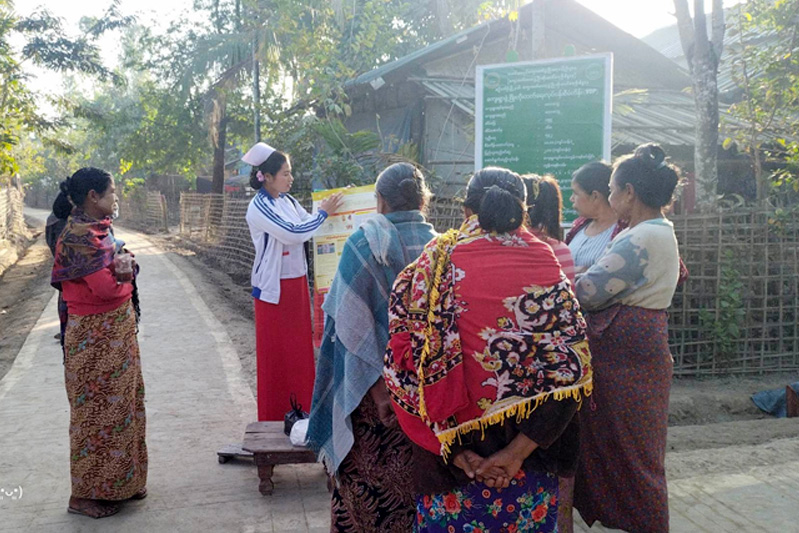
Vaccines against elephantiasis are being distributed free of charge in Mrauk-U and Sittwe districts.
DMG Newsroom
16 February 2023, Sittwe
The Arakan State Health Department has urged locals to take freely available vaccines against elephantiasis as the disease is still found in the state.
Elephantiasis is a tropical disease caused by parasitic worms that are spread via mosquito bites. Symptomatic individuals with elephantiasis may see their skin get thick and hard, resembling an elephant’s skin, and they may experience swelling and enlargement of the limbs.
Though the prevalence of elephantiasis has declined year by year in Arakan State, cases are still detected in Sittwe and Mrauk-U districts.

Since February 13, health staff have been delivering free elephantiasis vaccines door to door in townships across Sittwe and Mrauk-U districts, as well as educating people about the disease, according to the Arakan State Health Department.
“We are delivering free vaccines, and we want people to take them without fail,” said U Zaw Zaw Aung, deputy head of the Arakan State Health Department. “There is no one who has not been bitten by mosquitoes, so anyone can get elephantiasis. The vaccine will get rid of the parasites if they are in the body. People should take care as it can cause chronic health problems.”
Children younger than 2, pregnant women, breastfeeding mothers, and people with chronic health conditions like high blood pressure and diabetes, should not take the vaccine, said the health department.
Mosquitoes are responsible for spreading the parasites that cause elephantiasis. Most people who are infected will not show symptoms, despite it doing damage to the lymph system and kidneys. Those who develop symptoms most commonly experience swelling of the legs, arms, and breasts, often accompanied by fever, chills and swelling of lymph nodes.
People with an active infection can take medication to kill the worms in the blood. Surgery may be recommended in rare cases to remove damaged lymphatic tissue or relieve pressure in certain areas.
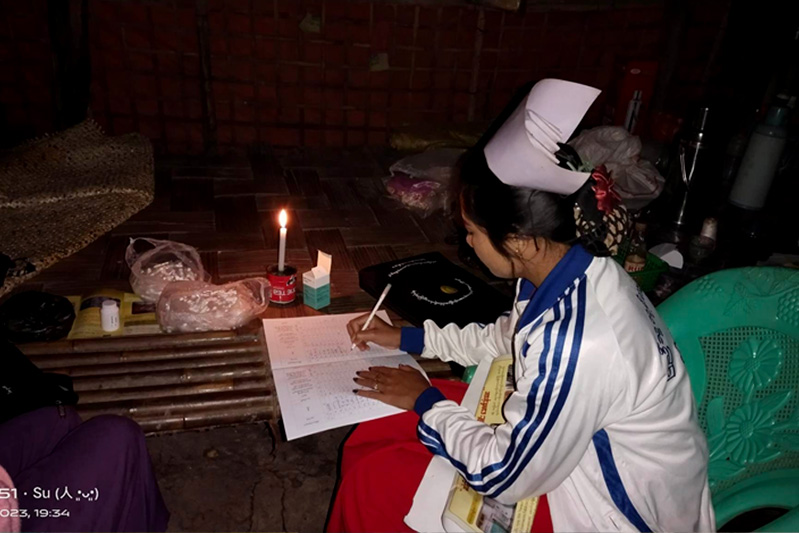
Some locals are concerned that they might be sensitive to certain ingredients of the vaccine. “Some don’t want to take vaccines. But the vast majority are willing to take the vaccine,” said a health staffer from Rathedaung Township who is delivering the vaccines.
The vaccine has no serious side effects, except dizziness and vomiting in some cases.




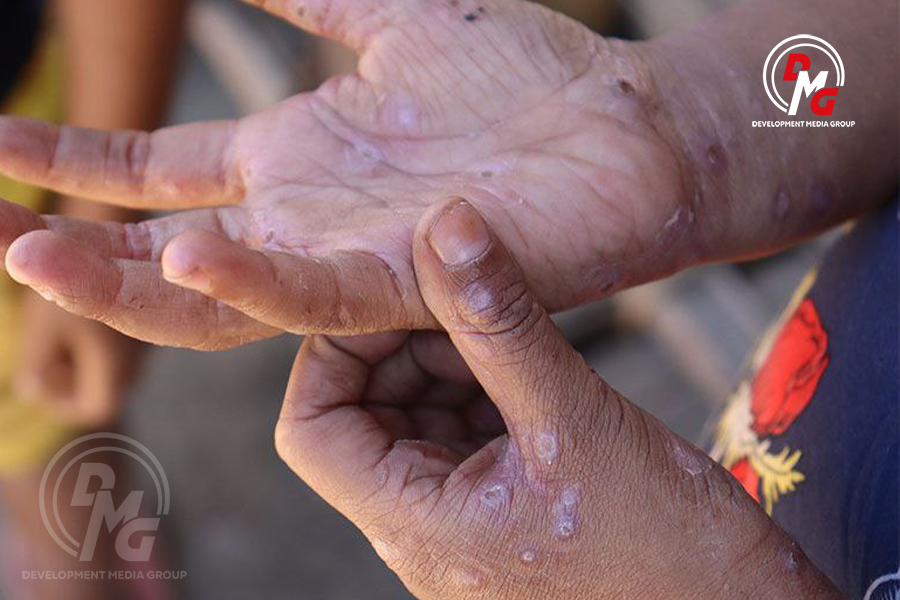


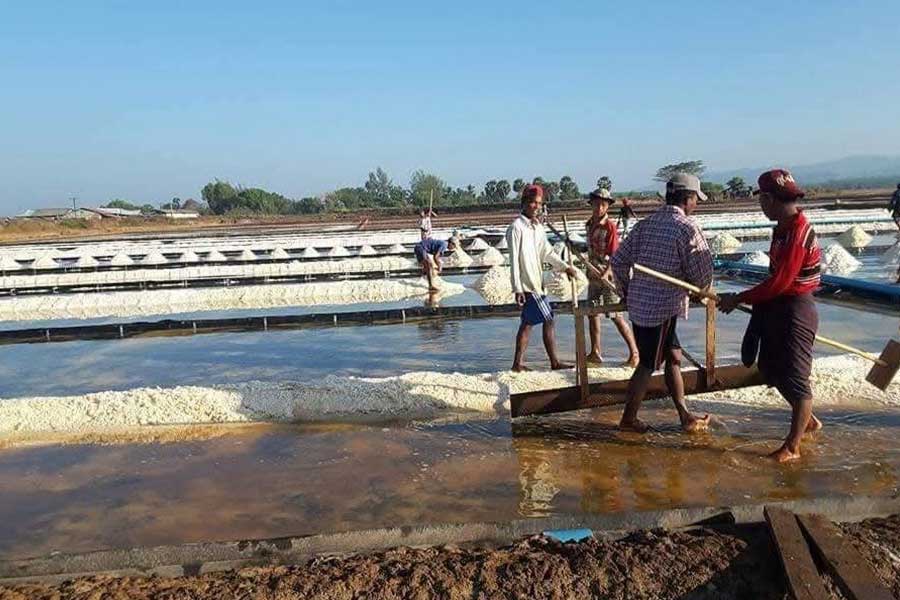
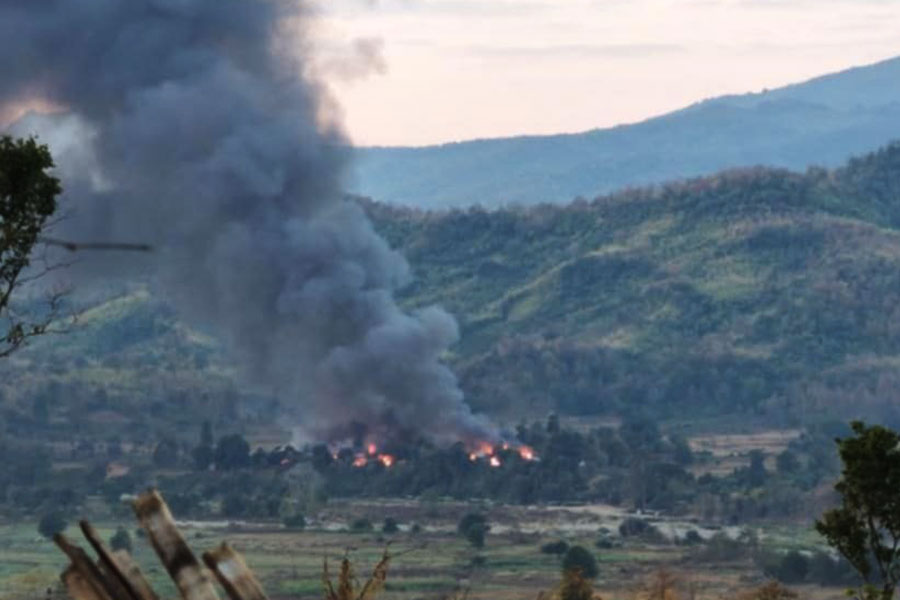






.jpg)

